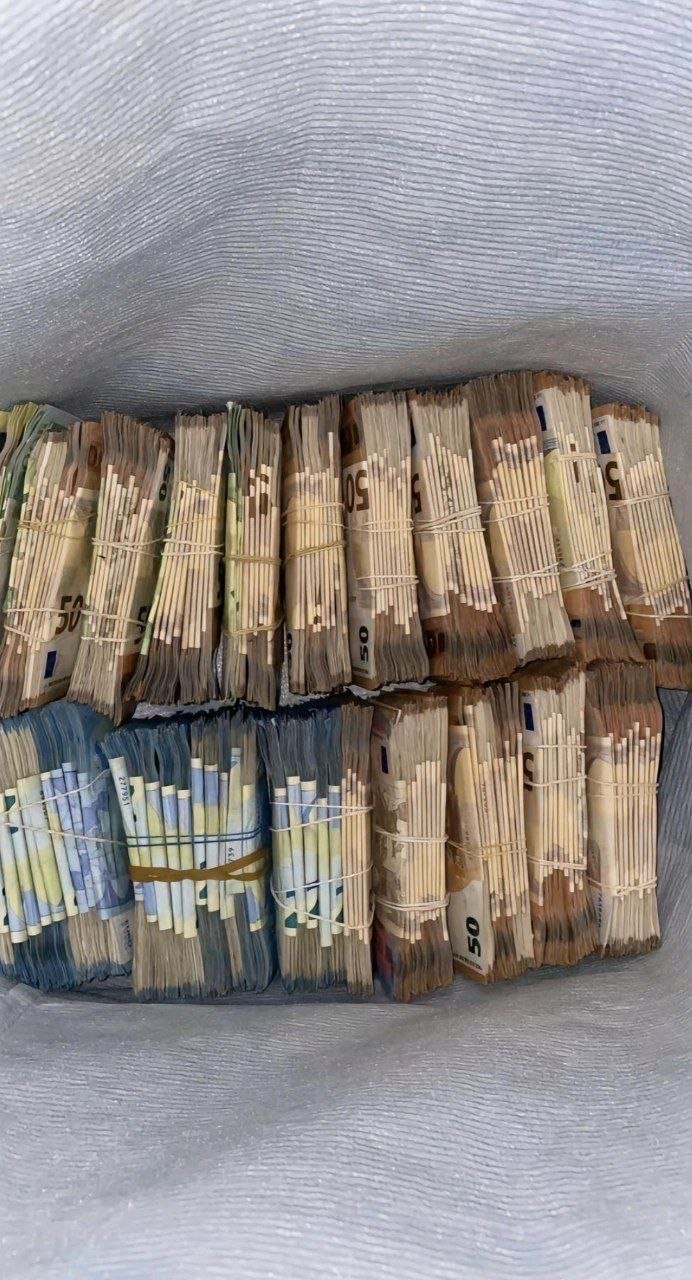#La Martinique
Explore tagged Tumblr posts
Text
Un Jour Une Histoire : 15 septembre, La Martinique, Témoin de l'Épopée Française, 388 Ans d'Histoire depuis 1635
La Martinique, cette perle émeraude des petites Antilles, célèbre aujourd’hui son 388e anniversaire en tant que territoire français, un événement historique qui a façonné l’île et contribué à l’enrichissement culturel de la nation française. Le 15 septembre 1635, un chapitre marquant de l’histoire française s’ouvrait lorsque Pierre Belain d’Esnambuc débarqua sur les rivages de cette île…

View On WordPress
0 notes
Text

La Roxelande river in Saint-Pierre, Martinique
French vintage postcard
#la roxelande#martinique#sepia#photography#vintage#postkaart#ansichtskarte#ephemera#carte postale#postcard#postal#roxelande#briefkaart#pierre#martinique french#photo#saint#tarjeta#saint-pierre#historic#french#river#postkarte
3 notes
·
View notes
Text
Bonne visite
#actualité fait divers#martinique#la mer#tumblr milestone#ouragan#santé#cuisine#caraibes#politics#gastronomia
2 notes
·
View notes
Text





✅Salut Je suis un vendeu de faux billets💴💶 yescard ou cartes Blanches🎫💳
Je fais uniquement les coupures de 20€, 50€ et 10€. Mes billets passent partout (station, essence, super marché, snack bar, et stylos .... sauf dans les banques).
✅La Yescard 💳💵qui est une carte de crédit codée avec des données bancaires qui sert a retiré de l'argent dans n'importe quel distributeur des billets de qualité A+++++ surtout le premier retrait on fait ensemble près d'un distributeur pour la vérifié 🔱
👇
Telegram : https://t.me/aurierstorecash
📲: @auriercash
Snapchat : https://www.snapchat.com/add/lreussite23?share_id=fN-k5CmreoM&locale=fr-CM
#français#guyane française#ile de la réunion#france#guadeloupe#lausanne#limoges#martinique#nature#poitiers#domme mommy#have a nice day#paris france#paris hilton#paris saint germain#marseilles#saint malo#mayotte#marketing#saint paul#carlos sainz#reunion#santo ileso#lyon#bordeaux#niort#nîmes
2 notes
·
View notes
Text
Le Plus Grand et Vénérable Grand maître en Travaux Occultes, Le roi des esprits vous ouvres les portes du Bonheur et de la réussite. Maitre Spirituel Amoles à votre service 24 h|24,7 jours sur 7.
Contact Tél et Whatapp : (+229) 65 78 36 09.. (00229) 65 78 36 09.

having splatoon 3 withdrawal after the test fire rn
#voyant marabout Paris#retour affectif Martinique#marabout vaudou Guadeloupe#medium africain Lyon#marabout sérieux Marseille#marabout guérisseur Bruxelles#Voyance Luxembourg#Voyance Paris#marabout africain Dax#Voyant Tours#marabout guérisseur Dax#astrologue Bayonne#amourologue Perpignan#voyant sérieux périgueux#voyant juif paris#voyant médium juif genève#voyant médium ile de la réunion#retour affectif la réunion#marabout vaudou la réunion#marabout vaudou NIce#retour affectif TOULOUSE#voyant medium suisse#astrologue Nice#astrologue#Paris#astrologue Suisse#meilleur marabout geneve
4K notes
·
View notes
Text
Comment grossir son pénis naturellement, Grossir naturellement son pénis
Comment grossir son pénis naturellement grossir naturellement son pénis Grossir naturellement son pénis, La taille du pénis est un sujet sensible pour de nombreux hommes. Si vous souhaitez augmenter naturellement la taille de votre pénis, le Produit du grand marabout guérisseur Gotta pourrait être une solution pour vous. Ce produit, développé par le célèbre marabout guérisseur Gotta, est…
#Agrandir mon penis de 5cm#Agrandir penis creme#Agrandir son pénis avec la crème Titan Gel#Augmenter la taille de son pénis le vite possible#Augmenter la taille de vos pénis pour être satisfait#Comment agrandir efficacement le pénis#Comment agrandir la taille de son pénis#Comment agrandir son pénis#Comment agrandir son pénis avec de l&039;Aloe Vera ?#Comment agrandir votre pénis en une semaine#Comment allonger le pénis#Comment devenir riche en 2 jours#Comment faire grossir son pénis naturellement ?#comment faire grossire son penis#Comment faire pour avoir un gros et long pénis ?#comment gonfler son penis#Comment grossir et allonger naturellement votre pénis#Comment grossir son pénis au Canada#Comment grossir son pénis australie#Comment grossir son pénis e#Comment grossir son pénis en Allemagne#Comment grossir son pénis en suède#Comment grossir son pénis en suisse#Comment grossir son pénis Espagne#Comment grossir son pénis Guadeloupe#Comment grossir son pénis Italie#Comment grossir son pénis Luxembourg#Comment grossir son pénis Martinique#comment grossir son pénis naturellement grossir naturellement son pénis#Comment grossir son pénis roumanie
0 notes
Text
Transcontinental Rum Line High Seas La Maison & Velier
Review by: Raygun A quick note before anything else for the sake of transparency. This review was done with an industry sample provided free of charge, with no expectations beyond drinking them. As always, I do my best to provide my unbiased opinion, and readers can decide how they want to take this review. For more information, see our Ethics & Transparency statement. This is a blend of aged…

View On WordPress
#blended rum#Independent Bottling#Jamaica#La Maison & Velier USA#Martinique#Panama#Raygun#Rum Review#Transcontinental Rum Line
0 notes
Text

Si eux. Aussi VEULENT LEUR LIBERTÉ DONNEZ LEUR À LA GUADELOUPE CALEDONIE ETC …… QUAND RAYMOND BARRE ( voir W ) A passé les commandes des finances après l accessions au pouvoir de Mitto à cause des communistes a qui il avait promis monts et merveilles 👹.
MR BARRE A REMIS DES FINANCES POSITIVES
Puis le G7 MITTO VOIT GRAND MON PARRAIN ALORS MAIRE DE VERSAILLES EST ÉCŒURE “ ANDRÉ DAMIEN “ ♥️♥️♥️♥️♥️ MR MITTO VEUT LE PALAIS DE VERSAILLES LES US DEMANDE LA DÉMONTER LES PARQUETS D ÉPOQUE POUR LEURS CÂBLES etc ?.. 12 millions de FRANCS A L ÉPOQUE 😡 now NOUS EN SOMMES A + de 3 milliards DE DÉFICIT 👺👺👺👺👺👺👺👺👺 la france a donné distribué des sous à qui en veut en voila …..
Maintenant c est l islame pas la bonne qui coûte chère
Ou ALLEZ VOUS. PAUVRE. france 🥺🥺🥺🥺🥺🥺🥺CE PAUVRE MR BARNIER N’ AURAIT PAS DU ACCEPTER CE JEU DE DUPES MANIGANCÉ LA GAUCHE ÉTÉ LES PRO TERRORISTES
0 notes
Text

https://www.medyumyunus.com Contactez-moi 24h/24 et 7j/7 sur WhatsApp sur mon site sans hésitation. Écrivez sur Whatsapp sur mon site 24h/24 et 7j/7 pour Bringing Back the Lost One, Death Spell, Soap Spell, Psychic Hodja, Separation Spell, Cooling Spell, Divorce Spell, pour toutes sortes de transactions. , Lisez mes premiers commentaires, révisez mes documents, rédigez. (Vous pouvez m'écrire dans n'importe quelle langue sur WhatsApp sur mon site. Je fais de la magie avec des images à distance. Résultats à mille pour cent et garantis.) Les frais de sorts sans transaction seront remboursés. mais il y en avait des milliers et aucun résultat négatif n’a été constaté. Mes commentaires Facebook, documents, accord de site sur mon site internet . https://www.medyumyunus.com 📍 LIEN CONTACT WHATSAPP 📍 https://wa.me/+905352088478 ⚡ Vous pouvez me joindre 24h/24 et 7j/7 via WhatsApp sur mon site internet sans hésitation. Écrivez sur mon site sur Whatsapp 24h/24 et 7j/7 pour tout type de transaction telle que Bringing Back the Lost, Death Spell, Soap Spell, Medium Hodja, Separation Spell, Cooling Spell, Divorce Spell. , Lisez mes premiers commentaires, révisez mes documents, rédigez . . .
#Tarn Et Garonne#Var#Vaucluse#Vendée#Vienne#Haute Vienne#Vosges#Yonne#Territoire De Belfort#Essonne#Hauts De Seine#Seine Saint Denis#Val De Marne#Val D'Oise#Guadeloupe#Martinique#Guyane#La Réunion#Mayotte
0 notes
Video
Le Plus Grand et Vénérable Grand maître en Travaux Occultes, Le roi des esprits vous ouvres les portes du Bonheur et de la réussite. Maitre Spirituel Amoles à votre service 24 h|24,7 jours sur 7.
Contact Téléphone et Whatapp : (+229) 65 78 36 09.. (00229) 65 78 36 09 E-mail: [email protected]
wrap chinese jiaozi in different shapes
#7 jours sur 7.#Voyant marabout Paris#retour affectif Martinique#marabout vaudou Guadeloupe#medium africain Lyon#marabout sérieux Marseille#marabout guérisseur Bruxelles#Voyance Luxembourg#Voyance Paris#marabout africain Dax#Voyant Tours#marabout guérisseur Dax#astrologue Bayonne#amourologue Perpignan#voyant sérieux périgueux#voyant juif paris#voyant médium juif#genève#voyant médium ile de la réunion#retour affectif la réunion#marabout vaudou la réunion#marabout vaudou NIce#retour affectif TOULOUSE#voyant medium suisse#astrologue Nice#astrologue#Paris#astrologue Suisse#meilleur marabout geneve
2K notes
·
View notes
Text
0 notes
Text
Gabrielle, CM2 est venue nous lire : " Il était une fois la Martinique". de Danielle Fossette et Stéphane Conseil.
#ecole communale plonevez porzay#ecole maternelle plonevez porzay#ecole primaire plonevez porzay#ecole publique plonevez porzay#ecole plonevez porzay#gscp#ecole communale#cycle 3#ps/ms#ecole plonevez#Il etait une fois la martinique#danielle fossette#stéphane conseil#CM
0 notes
Video
Le Plus Grand et Vénérable Grand maître en Travaux Occultes, Le roi des esprits vous ouvres les portes du Bonheur et de la réussite. Maitre Spirituel Amoles à votre service 24 h|24,7 jours sur 7.
Contact Téléphone et Whatapp : (+229) 65 78 36 09.. (00229) 65 78 36 09 E-mail: [email protected]
making traditional chinese cuisine, 橘酿葛根粉gegenfen( flavorous translucent paste made by root of pueraria lobata in green orange peel) by 彭传明pcm
#Voyant marabout Paris#retour affectif Martinique#marabout vaudou Guadeloupe#medium africain Lyon#marabout sérieux Marseille#marabout guérisseur Bruxelles#Voyance Luxembourg#Voyance Paris#marabout africain Dax#Voyant Tours#marabout guérisseur Dax#astrologue Bayonne#amourologue Perpignan#voyant sérieux périgueux#voyant juif paris#voyant médium juif#genève#voyant médium ile de la réunion#retour affectif la réunion#marabout vaudou la réunion#marabout vaudou NIce#retour affectif TOULOUSE#voyant medium suisse#astrologue Nice#astrologue#Paris#astrologue Suisse#meilleur marabout geneve
1K notes
·
View notes
Text
🚨Tu en a mare d’un salaire💶minable chacun fin de mois?🚨
En 2024 nous vous aidons à connaître une liberté 🗽 financière,nous aidons les plus démunis à avoir des revenus plus rapidement et facilement…pour en savoir Plus je vous invite à rejoindre notre chaîne télégramme ci-dessous ⤵️⤵️⤵️
https://t.me/aurierstorecash





#français#guyane française#ile de la réunion#france#guadeloupe#lausanne#limoges#martinique#nature#poitiers#suisse#belgique#marseille#have a nice day#olympique lyonnais#mayotte#saint malo#saint paul#saint louis#reiner braun#nantes#caen#rennes#lavalier#angers#niort#lorient#brest#quimper#le mans
3 notes
·
View notes
Text
Comment grossir son pénis naturellement, Grossir naturellement son pénis
Comment grossir son pénis naturellement grossir naturellement son pénis Grossir naturellement son pénis, La taille du pénis est un sujet sensible pour de nombreux hommes. Si vous souhaitez augmenter naturellement la taille de votre pénis, le Produit du grand marabout guérisseur Gotta pourrait être une solution pour vous. Ce produit, développé par le célèbre marabout guérisseur Gotta, est…
#Agrandir mon penis de 5cm#Agrandir penis creme#Agrandir son pénis avec la crème Titan Gel#Augmenter la taille de son pénis le vite possible#Augmenter la taille de vos pénis pour être satisfait#Comment agrandir efficacement le pénis#Comment agrandir la taille de son pénis#Comment agrandir son pénis#Comment agrandir son pénis avec de l&039;Aloe Vera ?#Comment agrandir votre pénis en une semaine#Comment allonger le pénis#Comment devenir riche en 2 jours#Comment faire grossir son pénis naturellement ?#comment faire grossire son penis#Comment faire pour avoir un gros et long pénis ?#comment gonfler son penis#Comment grossir et allonger naturellement votre pénis#Comment grossir son pénis au Canada#Comment grossir son pénis australie#Comment grossir son pénis e#Comment grossir son pénis en Allemagne#Comment grossir son pénis en suède#Comment grossir son pénis en suisse#Comment grossir son pénis Espagne#Comment grossir son pénis Guadeloupe#Comment grossir son pénis Italie#Comment grossir son pénis Luxembourg#Comment grossir son pénis Martinique#comment grossir son pénis naturellement grossir naturellement son pénis#Comment grossir son pénis roumanie
0 notes